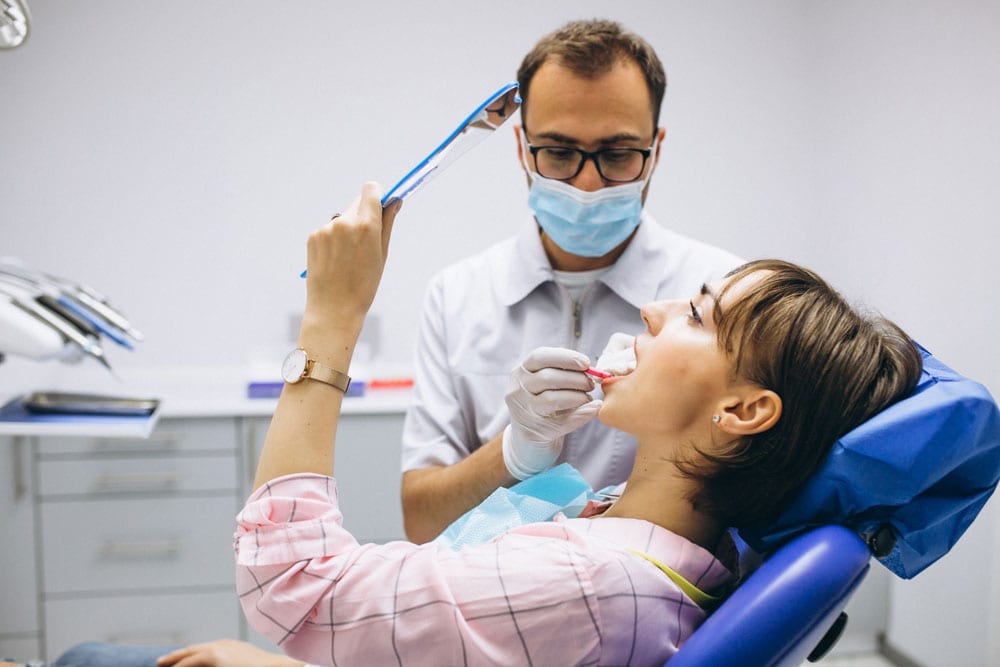It seems like nowadays there is a holiday for every thing and every reason. But one we can’t ignore is April being Oral Cancer Awareness Month. It’s so important, it doesn’t get just a day to be recognized, it gets it’s own month!
As dental professionals in our offices, when you come in for your routine dental visit, we always offer and want you to be aware that we do a basic oral cancer screening for you. There is one other screening we offer, called Identify, that helps us detect tissues on the cellular level through a light source, to identify areas that may need further attention. The dental hygienist or dentist will look at all the areas in your mouth, including your tongue on the sides and in the back, and the roof of your mouth.They will also check for any swelling along the neck. Each and every patient should be screened regardless of age or habits.
Another way to identify a possible oral cancer lesion is to be aware of what is in your own mouth. Look at your tongue, the tissues of your cheeks and around the teeth. If you notice something like a red or white patch, take note of the appearance. If the lesion doesn’t go away after 2-3 weeks, go see your dentist for his opinion. He may check the area again after 2-3 weeks or he may refer you to a specialist to have the area evaluated.
“There is much that can be done for those who are diagnosed with head and neck cancer. Since early detection and treatment is critical, it’s important to see your dentist regularly and to promptly see a medical professional if there are any warnings signs,” — The Oral Cancer Foundation
Oral cancer symptoms:
- Persistent mouth sore: A sore in the mouth that does not heal is the most common symptom of oral cancer
- Pain: Persistent mouth pain is another common oral cancer sign
A lump or thickening in the cheek - A white or red patch on the gums, tongue, tonsil, or lining of the mouth
- A sore throat or feeling that something is caught in the throat that does not go away
- Difficulty swallowing or chewing
- Difficulty moving the jaw or tongue
- Numbness of the tongue or elsewhere in the mouth
- Jaw swelling that makes dentures hurt or fit poorly
- Loosening of the teeth
- Pain in the teeth or jaw
- Voice changes
- A lump in the neck
- Weight loss
- Persistent bad breath
Again, if you notice any of these things, come into the office and get things checked out. The earlier oral cancer is identified, the better the outcome.
According to the American Cancer Society, “A relative survival rate compares people with the same type and stage of cancer to people in the overall population. For example, if the 5-year relative survival rate for a specific stage of cancer is 90%, it means that people who have that cancer are, on average, about 90% as likely as people who don’t have that cancer to live for at least 5 years after being diagnosed.”



